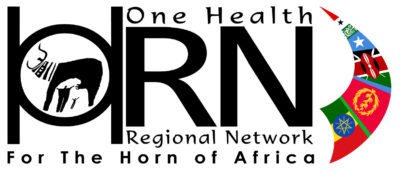
From the 1st – 5th June 2020, the HORN project hosted its third Sandpit event which culminated in six research projects being allocated a total of £200,000 in funding.
Earlier this year, the Project had hoped to host a “live” Sandpit in Africa, focusing on the United Nations’ Sustainable Development Goal 1, “No Poverty”. Unfortunately it wasn’t long after the application process opened that COVID restrictions came into place, leaving the Project with no other choice but to postpone the event until a later date. It was quickly decided however, that an online Sandpit could be held instead – a Sandpit focused on developing COVID-19 related research with a One Health focus.
Through a series of lectures and guided learning around One Health, ethics, grantsmanship, and how to present research proposals, the Sandpit provided an opportunity for the 25 successful participants (across six teams) to develop, refine and present their COVID-related research ideas.
The event started on Monday 1st June with an introduction to the HORN project and team members. A brief update on the COVID-19 situation from HORN partners proceeded an ice-breaking session where teams met their mentors. Each team were then given an opportunity to present their proposal via a 5-minute “turbo talk”. The afternoon session focused on the Sandpit format, what to expect from one, and ways of working.
Day 2 morning sessions began with a presentation on “What is One Health Research?” followed by group work which saw the teams, guided by their mentors, brainstorm their research aims and objectives. In the afternoon the teams had further group work, before presenting their proposal aims, objectives and methodology to their peers.
On day 3, the teams were given advice and guidance around ethical considerations, such as sample size justification, animal research, and research integrity, to name a few. The day was rounded off with the teams applying this guidance to their own proposals within team working sessions.
The penultimate day of the Sandpit started with guidance on how to pitch a proposal and setting a budget. The teams then spent the remainder of the day (and evening) preparing their pitches for the following day.
On the fifth and final day of the Sandpit, the six teams had 15 minutes to pitch their research proposals to a funding panel. After five days of online presentations and group work, another successful Sandpit came to an end with all six teams receiving funds totalling £200,000.
| Research Title | Country/Countries |
| Assessing the Impact of Non-pharmaceutical Interventions (NPIs) on the dynamics of Covid-19 in the Horn of Africa: A mathematical modelling study in the case of Ethiopia, Kenya and Djibouti |
Ethiopia Kenya Djibouti |
| Responding to COVID-19: The Case of Somaliland Pastoral Societies | Somaliland |
| COVID-19 and its indirect impact on essential and routine healthcare services in Ethiopia | Ethiopia |
| Analysis of respiratory virus and bacteria shedding in exhaled breath and mass masking behaviour in a Kenyan community | Kenya |
| Coronavirus disease (COVID-19) pandemic and the impact of mitigation measures on dietary diversity and health outcomes in Uasin Gishu County, Kenya | Kenya |
| The effect of COVID-19 and response measures on Health, Economic and Social wellbeing of communities in HDSS sites, Ethiopia | Ethiopia |
